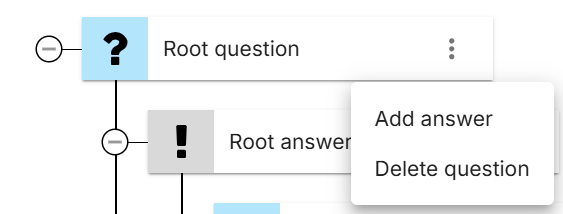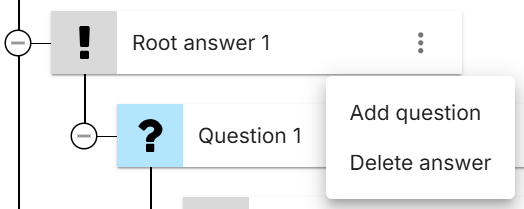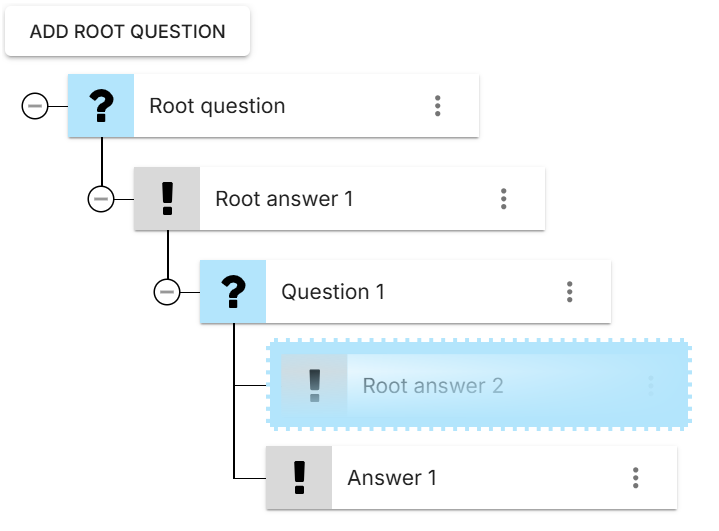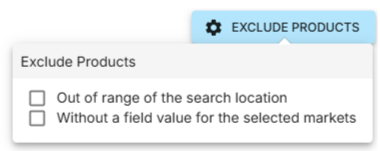Summary
Advisor campaigns allows to store questions as text or as graphics that are presented to shop customer in certain situations. Set of answers to the questions can also be provided. For each answer it is possible to add a product set that the shop customer will see when selecting the answer. This allows to quickly guide visitors with targeted questions to the products they are looking for.
Add Advisor campaign
To create new Advisor campaign, click New Element in the header bar to access the menu:
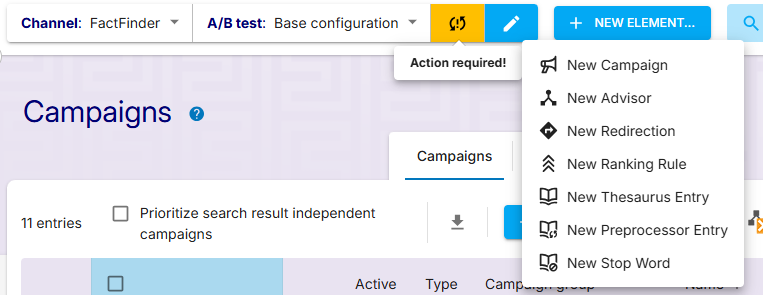
Add an Advisor - corresponds  Advisor campaign type.
Advisor campaign type.
Campaign trigger
First step of an Advisor campaign creation allows to select a trigger for the campaign.
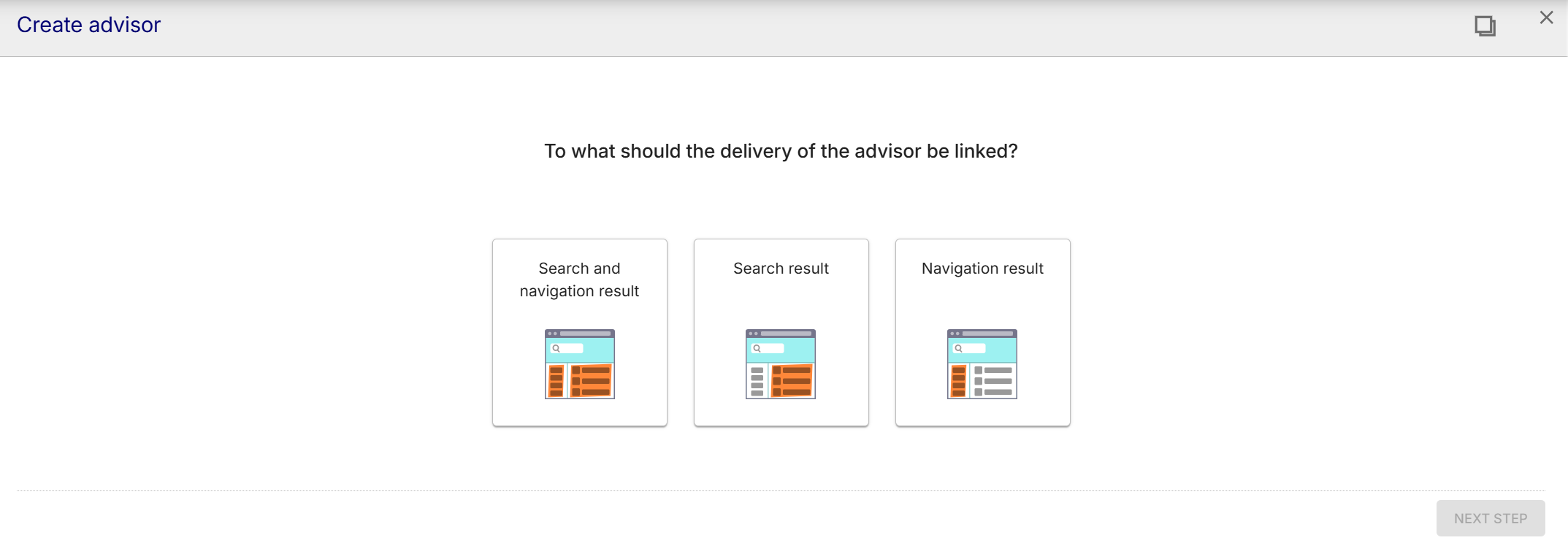
Search and navigation result - Campaign displayed if a query pattern is found in the search result or in the navigation.
Search result - Campaign displayed if a query pattern is found in the search result.
Navigation result - Campaign displayed if a query pattern is found in the navigation.
Next step of a product campaign configuration is setting up trigger conditions and is common for all campaign types, please Common Campaign configuration steps for details.
Set up Advisor
Actual Advisor can be created at “Advisor” tab.
It takes the form of a decision tree that allows the customer to access specific lists of products via any number of questions.
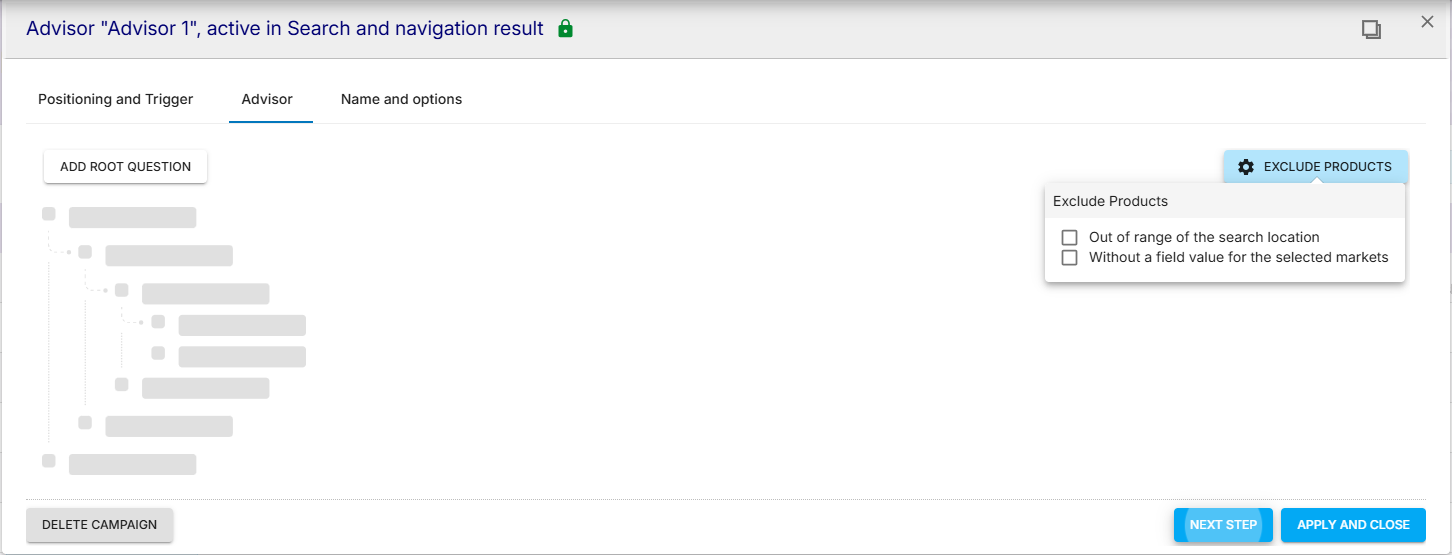
To start adding the options, click Add Root Question.
Empty root question and empty answer for it will appear instead of placeholder tree.
Editing questions
Click on any question in the tree will call editing form for the Question.
The form is WYSIWYG editor, allowing to input text, style it, add images and videos.
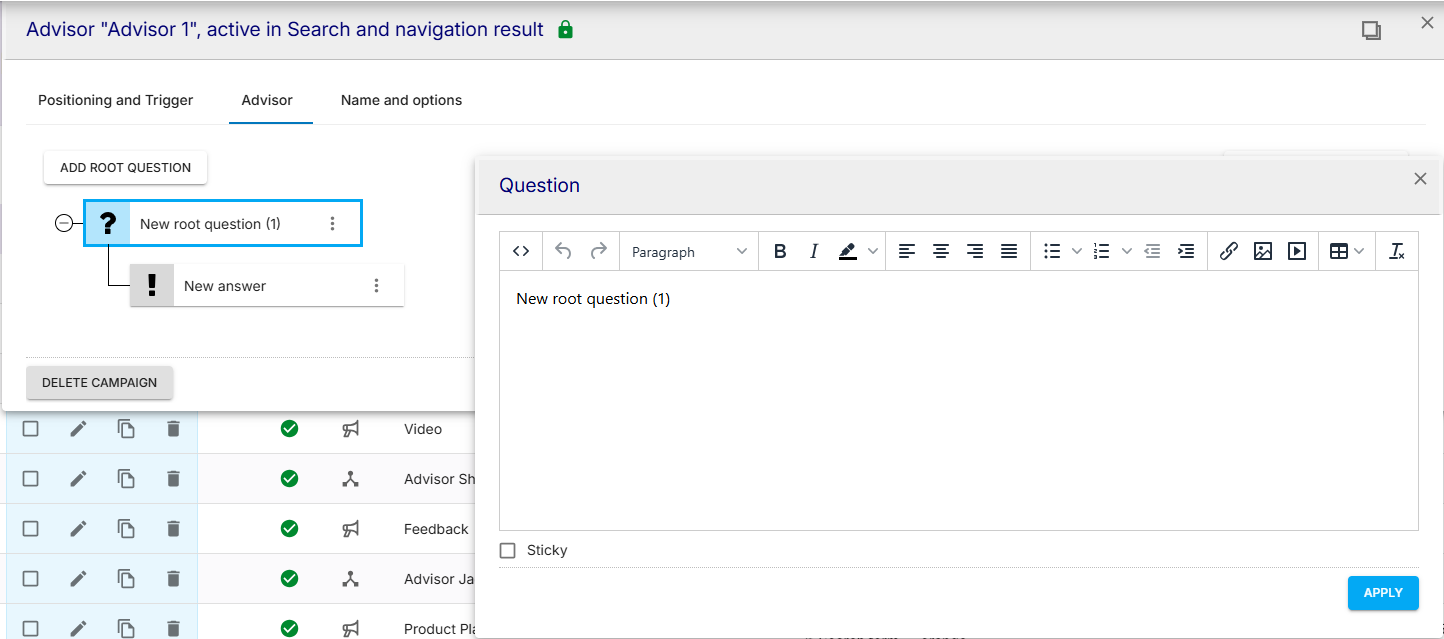
Managing questions and answers
Add and delete
Possibility to add and delete questions and answers can be found under the “kebab-menu” icon ![]()
If clicked on a question:
|
|
If clicked on an answer:
|
|
Reorganize
It is also possible to reorganize questions and answers in the tree by using drag and drop feature:
|
|
Create product lists
Each answer can either be the starting point for a new question or contain a product list.
Product lists management can be accessed by clicking Product List button in Answer edit pop-up
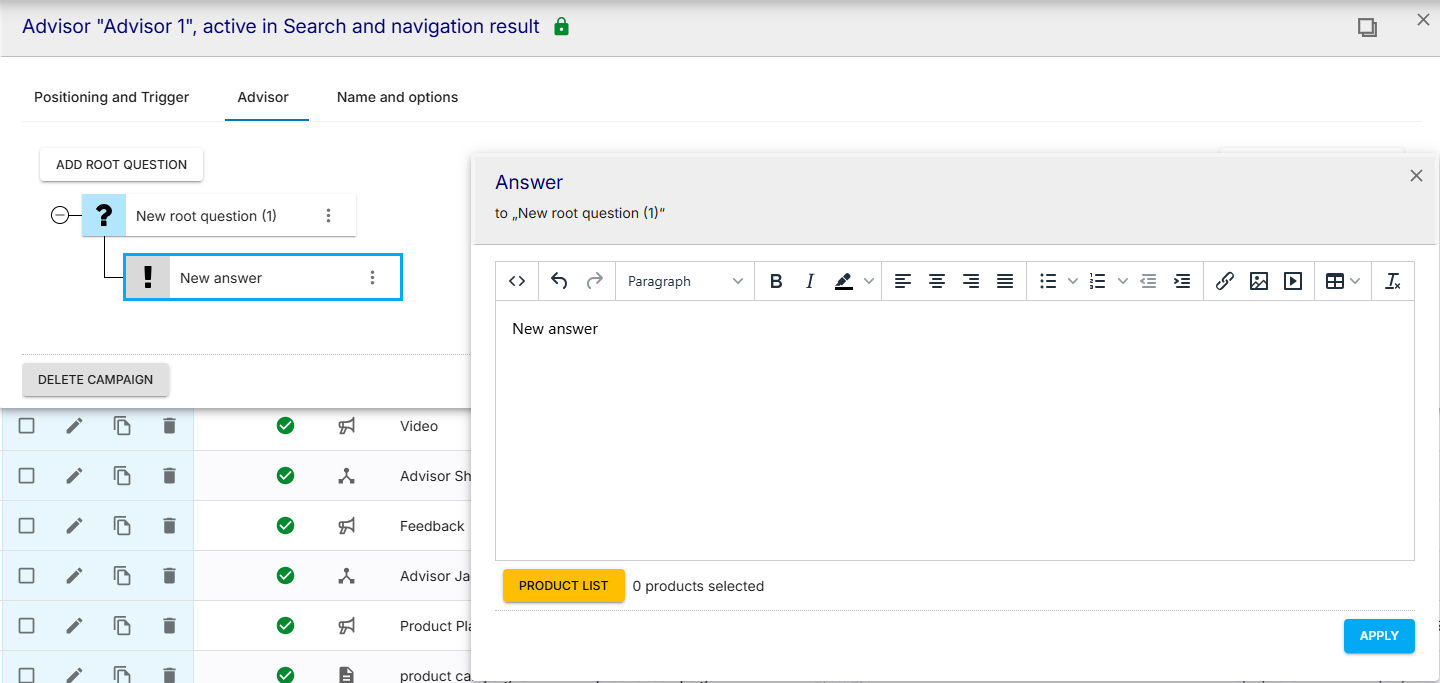
Select products pop-up will open
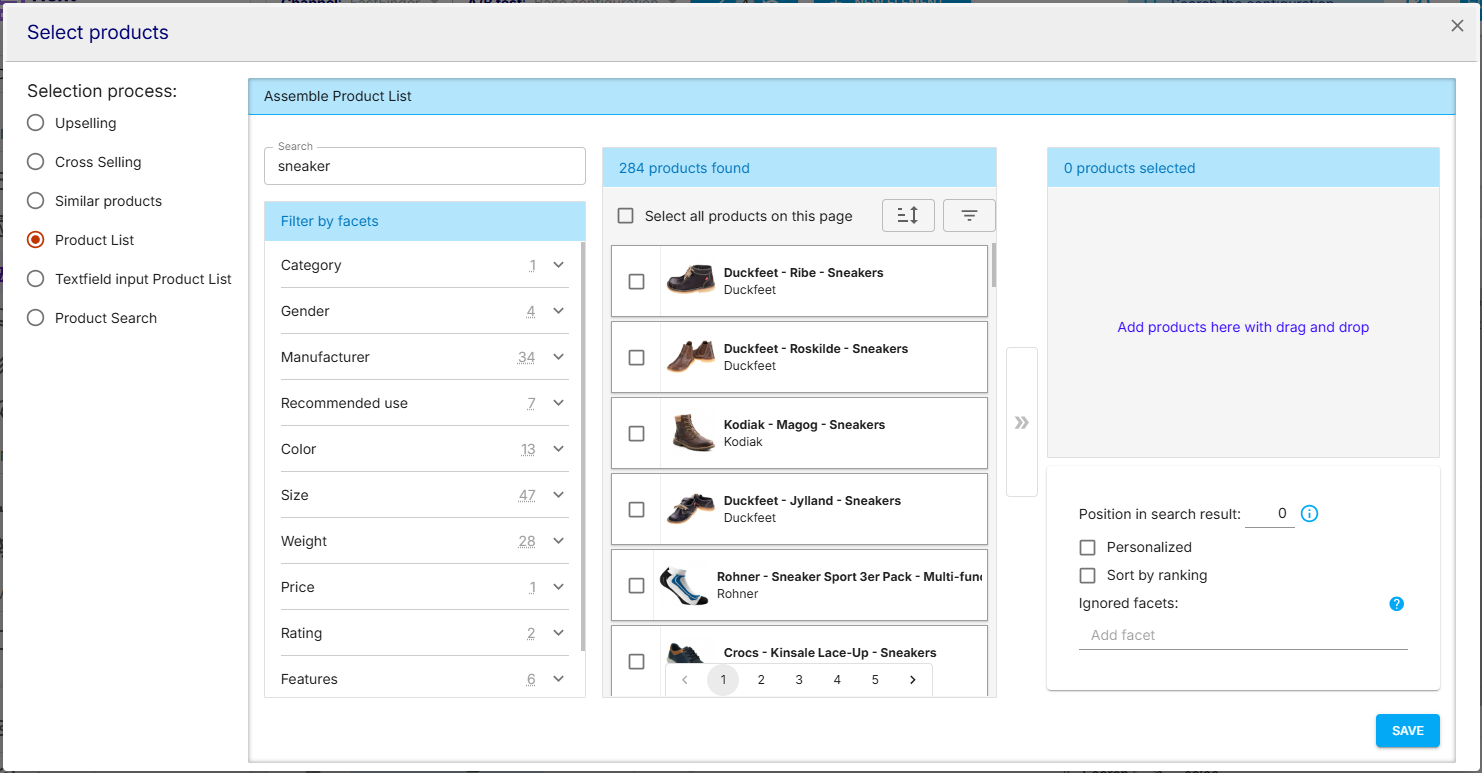
There is a radio button list with the following options allowing to incorporate static or dynamic product lists into the answer:
Upselling
Cross Selling
Similar products
Product List
Textfield input Product List
Product Search
Only single products list option can be added to an answer.
For detailed information about each Product list option please see Product selection section at Product campaigns article.
Exclude products
Products can be excluded from the campaign based on geo-policies
Exclude products button allows to exclude from the campaign products which are:
Outside of these options, search location and market selection have no influence on the campaign. |
|
Complete campaign
To complete the process, a name, a category and a description should be assigned to campaign, as well as activity period set up.
Please see Name and options section at Common Campaign configuration steps article for details.
